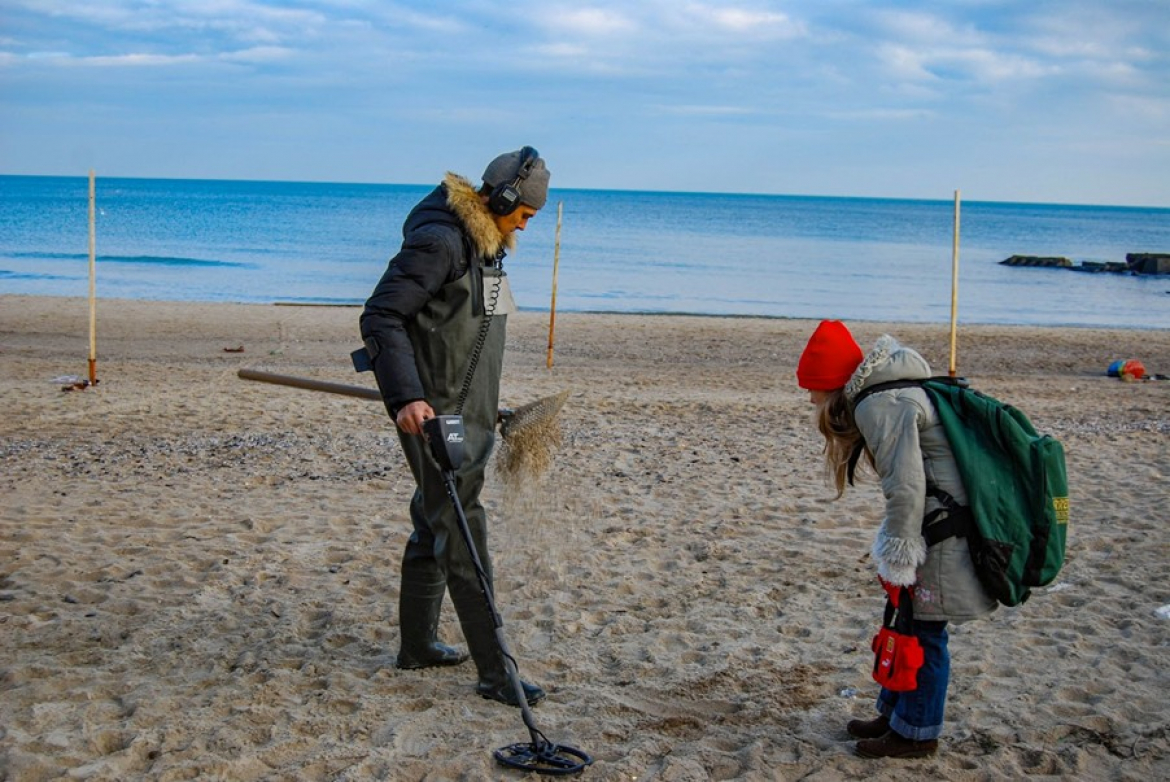Metal Detecting for Kids
Metal detecting gives kids a hands-on way to explore the world around them. It encourages curiosity, builds patience, and introduces them to real-life applications of history and science. Whether they're recovering a coin or identifying an old relic, each signal becomes an opportunity to learn something new.
For the best experience, kids need gear that’s designed for them. A lightweight detector with a waterproof coil and a simple LCD display helps reduce frustration and keeps the focus on fun. Garrett Metal Detectors has been trusted since 1964 for making reliable, easy-to-use detectors — including models made specifically for younger users and families.
Why Metal Detecting is a Great Outdoor Activity for Kids
Metal detecting checks all the boxes for a great family activity. It keeps kids engaged, gets them moving, and encourages problem-solving in a way that’s both fun and educational.
Benefits of metal detecting for kids:
- Builds patience, focus, and curiosity
- Gets them outdoors and away from screens
- A fun way to learn about history, geography, and science
- Real bonding opportunity for parents and kids
- Encourages responsibility and respect for nature
What to Look for in a Kids Metal Detector
Choosing the right detector can shape your child’s experience. It should feel easy to use, be comfortable for small hands, and include just enough features to keep it interesting without being overwhelming.
Features to look for in a kids' metal detector:
- Lightweight design that’s easy for kids to carry
- Adjustable stem to fit growing arms
- Waterproof search coil for shallow water or beach use
- Simple LCD screen or digital target ID for easy reading
- Basic detection modes for coins, jewelry, and relics
- Beginner-friendly settings with minimal buttons or confusion
Trusted, affordable models like the Garrett ACE or Vortex VX5 are ideal. These metal detectors balance simplicity with high-quality performance, giving kids the tools they need to succeed.
Best Places to Go Metal Detecting with Your Kids
Local Parks
Parks are ideal for young explorers. You’ll often find concentrations of lost coins, jewelry, and interesting metal objects near benches, picnic areas, or under shady trees. The terrain is easy to navigate, and many parks don’t require special permits — just check local rules.
Beaches and Shallow Water
Beaches are treasure hot spots, especially during the warmer months. Kids love the mix of sand, surf, and surprise finds. A waterproof metal detector or a beach metal detector like the Garrett Vortex VX5 is a must here. Coins and jewelry are common, especially in towel zones and shallow surf areas.
School Grounds (with permission)
Many schoolyards are great places to find vintage coins or lost trinkets. Always get permission from school staff or the local district. The flat, open layout makes it easy for kids to search, and a short visit after school can be a quick win.
Campsites and Nature Trails
Mix hiking with treasure hunting. Trails and campgrounds offer both adventure and hidden treasure. Teach your young explorers how to stay on path, respect wildlife, and look for signs of past visitors like fire rings or gathering spots.
Historic Public Lands (check local regulations)
Introduce your kids to the idea of finding real relics. These areas often hold stories beneath the surface: coins, buttons, or old tools. But do your homework: many sites have rules, so always check if detecting is allowed and follow respectful practices.
Your Own Backyard
Never underestimate the power of home turf. Your yard is the perfect place for practice. Parents can bury old coins or harmless metal objects for a beginner treasure hunt. This is a great way to learn detection modes and signal sounds in a controlled environment.
How to Make It Fun for the Whole Family
A little planning can turn a simple outing into a memory your child talks about for years.
Tips to make the adventure more fun:
- Set small goals (find a coin, dig 5 signals, etc.)
- Bring snacks, sunscreen, and water
- Pack a dig kit with gloves, a small digging tool, and a Garrett find pouch
- Start a “treasure log” (notebook or app)
- Celebrate every find, no matter how small
- Turn it into a mini lesson — what could this item be? Who might have dropped it?
Teaching Kids the Right Way to Detect
Along with fun comes responsibility. Teaching kids metal detecting ethics from the beginning builds good habits for life.
Remind them to always ask for permission, respect posted rules, and leave no trace behind. Fill every hole. Be gentle with nature. And when you find something that could be old or valuable, talk about its value and the right way to handle it.
Gear Checklist for Young Treasure Hunters
- Kids waterproof metal detector
- Headphones with volume control
- Shovel or sand scoop
- Backpack or tote bag
- Garrett Pro-Pointer (recommended)
- Gloves
- Garrett finds pouch
- Small first-aid kit and snacks
Discovering Adventure with Garrett Metal Detectors
Since 1964, Garrett Metal Detectors has been a trusted name in the world of treasure hunting, helping people of all ages uncover coins, jewelry, relics, and other hidden finds. Every detector we make reflects decades of expertise, with durable, American-made construction and user-friendly features that work and last.
Whether exploring the backyard or spending a day at the beach, models like the Garrett ACE and Vortex VX5 are designed to make the experience fun and rewarding. With lightweight builds, intuitive controls, Digital Target ID, and pinpointing functions, they’re perfect for kids, parents, and anyone new to the hobby. The Vortex series is also waterproof, so your young explorer can hunt in the water without worry.
To complete your setup, Garrett offers a full range of accessories that make detecting easier:
Explore our selection of the best metal detectors and help your kids start their journey.
FAQs
What age is best to start metal detecting with kids?
Most kids can start around ages 6–8 with supervision, especially with a junior-sized or beginner detector that fits their height and strength.
Can kids use adult metal detectors?
They can, but some adult models may be too heavy or complex. It’s better to start with a model that offers adjustable features and easy controls.
Do you need a permit to detect in parks or beaches?
It depends on your location. Many public parks allow metal detecting, but some may require permits or have restricted areas. Always check with the local parks department or city website before you go.









